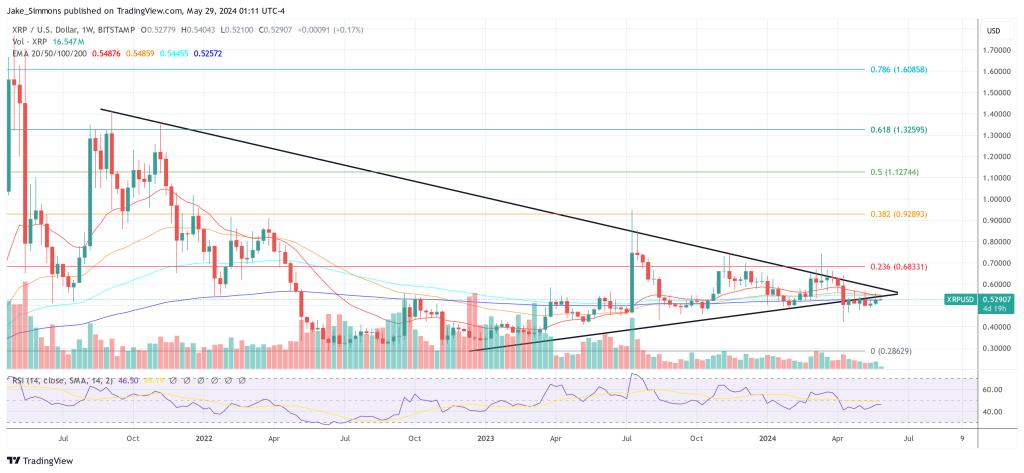In a post on social media, Bill Morgan, a leading pro-XRP attorney, reiterated allegations of biased regulatory practices by the Securities and Exchange Commission (SEC), accusing them of showing undue favoritism towards Ethereum at the expense of XRP. This assertion aligns with a broader accusation involving former SEC official William Hinman, which is now culminating in formal complaints by the Conservative Political Action Conference (CPAC).
Morgan’s fiery commentary surfaced on X, where he expressed his frustrations over “ETH Gate” with a touch of sarcasm: “But it is all just a grand conspiracy of the XRP community. It is a good summary and that is without even taking into account that the SEC started investigating Ripple, at a time when XRP was number three in market cap behind Ethereum, in April 2018 while the draft of the Hinman speech was being worked on by dozens of SEC staff and attorneys. How corrupt can a regulator be.”
XRP Army Gets Backed By CPAC
His statement comes after the legal and ethical scrutiny surrounding former Securities and Exchange Commission (SEC) official William Hinman has intensified, with the Conservative Political Action Conference (CPAC) Foundation leading the charge. Through its Center for Regulatory Freedom, CPAC has submitted formal complaints to the New York and California Bar Associations, alleging unethical behavior and potential conflicts of interest during Hinman’s tenure at the SEC.
The allegations stem from Hinman’s pivotal 2018 speech where he clarified the regulatory status of Ethereum (ETH), suggesting it should not be classified as a security—a decision that has had far-reaching implications in the cryptocurrency landscape.
Last week, Director of the CPAC Foundation Center for Regulatory Freedom Andrew Langer submitted complaints of unethical professional behavior to the New York and California Bar Associations about former Securities and Exchange Commission official William Hinman.
Evidence… pic.twitter.com/NUop4tJO8h
— CPAC (@CPAC) May 28, 2024
Andrew Langer, Director of the CPAC Foundation’s Center for Regulatory Freedom, stated in the complaint, “Mr. Hinman’s affiliations and actions while serving in a high-ranking SEC role raise serious ethical questions that warrant thorough investigation by the respective Bar Associations.”
William Hinman’s career trajectory and associations form the core of the controversy. After leaving his position as a partner at Simpson Thacher & Bartlett (STB)—a firm known for its financial services and involvement in the blockchain industry—Hinman was appointed Director of the SEC’s Division of Corporation Finance in May 2017.
Notably, in June 2018, Hinman delivered a speech that effectively differentiated Ethereum from securities, relieving it of stringent regulatory scrutiny applicable to securities transactions.
This speech coincided with Simpson Thacher’s involvement in the Enterprise Ethereum Alliance (EEA), an organization focused on promoting the use of Ethereum across various business sectors. CPAC’s complaint emphasizes the potential conflict of interest, highlighting that Hinman’s former firm stood to gain from Ethereum’s enhanced market position, which was arguably influenced by Hinman’s regulatory guidance.
The complaint by CPAC relies heavily on a series of internal SEC emails and external communications, which include dialogues with Ethereum co-founder Vitalik Buterin prior to Hinman’s 2018 speech. These documents were uncovered during the extensive discovery process in the ongoing SEC lawsuit against Ripple Labs. Ripple, whose XRP token was classified by the SEC as a security in a late 2020 lawsuit, arguably faced harsher regulatory treatment than Ethereum, a point of contention highlighted by critics like pro-XRP lawyer Bill Morgan.
At press time, XRP traded at $0.52907.






